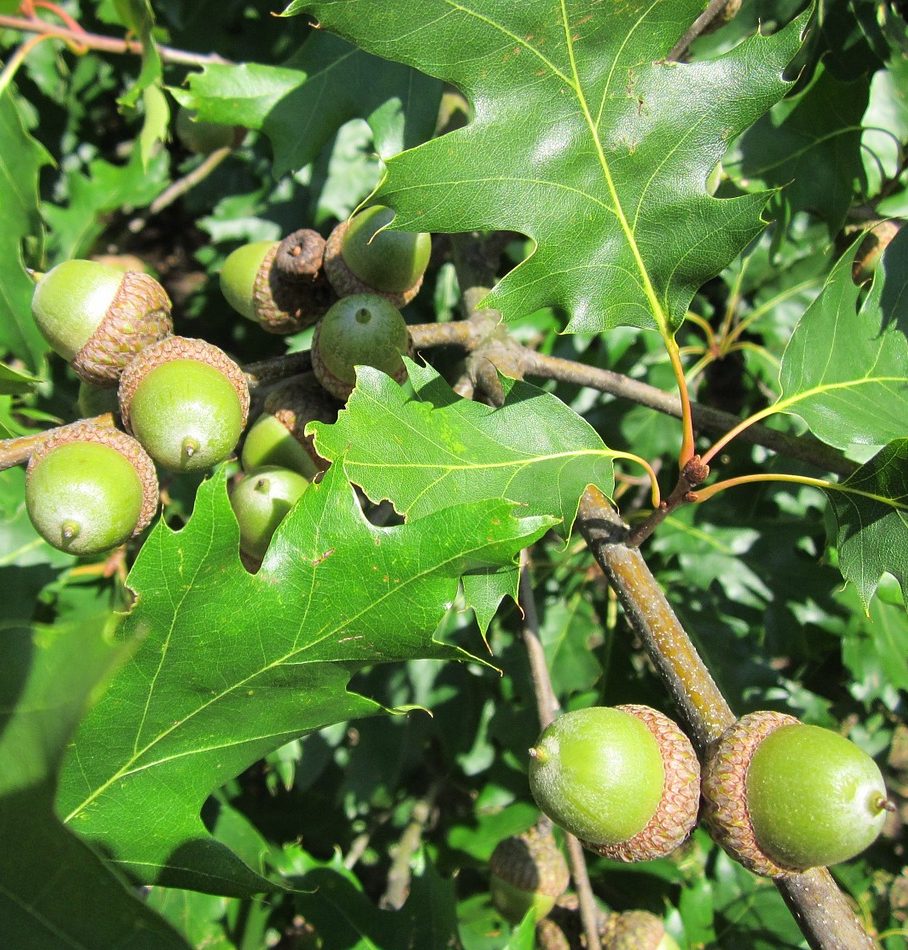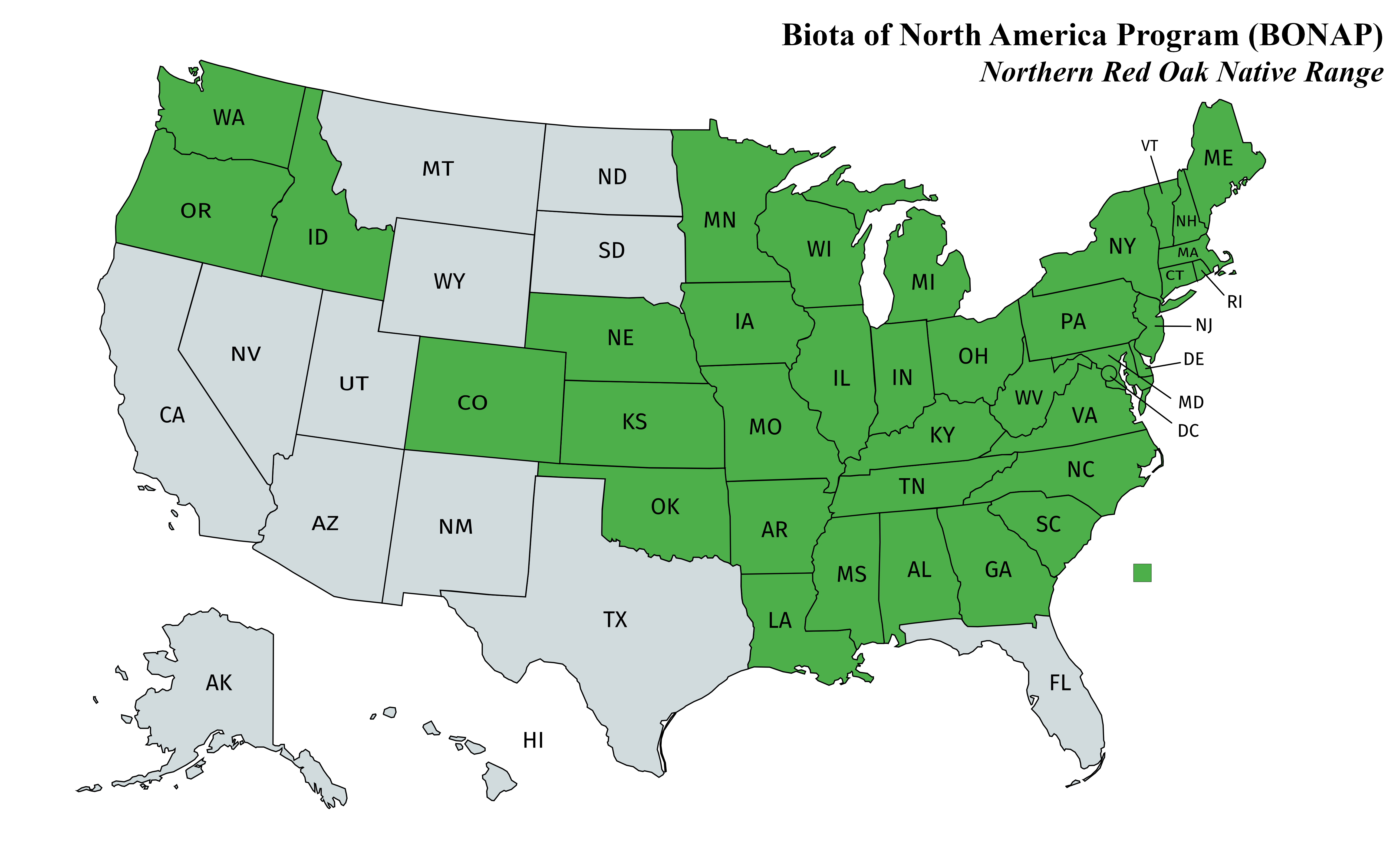Northern Red Oak
This product can only be purchased as part of a retail Landscape Package.
For bare root wholesale quantities and pricing please see our Wholesale Catalog.
Quercus rubra
The Northern Red Oak is a valuable fast growing oak for lawns, parks, golf courses, and commercial areas. Also known as Common Red Oak, Eastern Red Oak, Mountain Red Oak, and Gray Oak, this native tree is widespread in Eastern North America and grows on a variety of soils and topography. The tree often forming pure stands and is moderate to fast growing. Northern Red Oaks are one of the more important lumber species of Oak, and are an easily transplanted, and pollution tolerant. Planting instruction can be found at boydnursery.net/planting/.
| Classification | |
|---|---|
| Diseases & Insects | Basically free of problems, but can be prone in a very limited sense to anthracnose, basal canker, canker, leaf blister, leaf spots, powdery mildew, rush, twig blights, wilt, wood decay, shoe-string root rot, various galls, scales, yellow-necked caterpillar, pin oak sawfly, saddleback caterpillar, oak skeletonizer, Asiatic oak weevil, two-lined chestnut borer, flatheaded borer, leaf miner, oak lace bug and oak mite |
| Family | Fagaceae |
| Flowers | Flowers are monoecious, appearing on the old or new growth; staminate catkins pendent, clustered; individual flowers comprising a 4 to 7 lobed calyx which encloses 6 stamens, rarely 6 to 12; pistillate flowers solitary or in few to many-flowered spikes from the axils of the new leaves; individual flowers consisting of a 6 lobed calyx surrounding a 3 (rarely 4 to 5) celled ovary, the whole partly enclosed in an involucre; nut, solitary or paired, 3/4 to 1" long, variable in shape, but usually subglobose, enclosed at the base in a flat, thick, saucer-like cup, acorns mature and fall early, nut is medium brown with grayish streaks |
| Growth Rate | |
| Hardiness Range | zone 4a – 8b *need help finding your hardiness zone? |
| Leaves | Leaves are alternate, simple, oval or obovate, 4 1/2 to 8 1/2" long, 4 to 6" wide, 7 to 11 lobed, cuneate, sometimes rounded, lustrous dark green above, grayish or whitish or sometimes pale yellow-green beneath with axilary tuffs of brownish hair; petiole 1 to 2" long, yellowish, glabrous; pinkish to reddish when unfolding, lustrous dark green in summer changing to russet-red to bright red in fall; sometimes disappointing and never passing much beyond yellow-brown |
| Plant Type | |
| Primary Features | |
| Size | 60-75 feet tall at maturity with equal spread |
| Sun Requirement |


